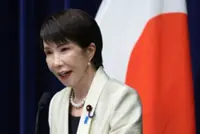Chinese President Xi Jinping arrived in Cambodia for a two-day state visit that serves as an opportunity to further strengthen already robust relations.
The visit, Xi’s first since 2016, will conclude a three-nation South-East Asian tour that included stops in Vietnam and Malaysia.





